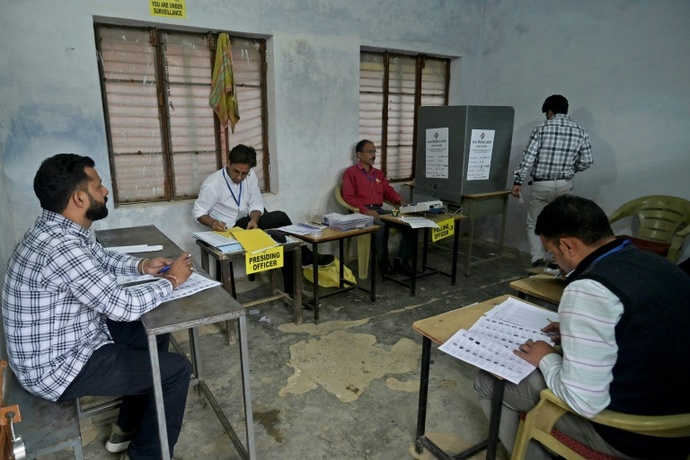Polling station in Udhampur district
Parliamentary elections scheduled for six weeks have begun in India, and the re-election of Hindu nationalist Narendra Modi is almost certain. When the polling stations opened, long queues had formed in several places.
Parliamentary elections scheduled for six weeks have begun in India, and the re-election of Hindu nationalist Narendra Modi is almost certain. When polling stations opened on Friday, long queues had already formed in some places, such as in the northern Indian city of Haridwar. A total of 968 million people in the South Asian country were asked to cast their votes.
Voting is carried out using electronic voting machines. To enable people in remote areas of this vast country to vote, some election officials traveled by foot, by helicopter and by boat.
There is no doubt that the ruling Hindu nationalist party, the BJP, will win again. This means that Prime Minister Modi can assume office for the third time. The 73-year-old leader remains popular even after a decade in power. His opponents have been weakened by internal power struggles and politically motivated criminal proceedings.
At the start of the election, Modi asked “all voters” on the online service X to exercise “their right to vote in very large numbers.” “Every vote counts,” the prime minister wrote.
The opposition Congress party called on its supporters on Friday to end “hatred and injustice”. “Your one vote can end inflation, unemployment, hatred and injustice,” the party said in X.
Voting will be conducted in seven phases between April 19 and June 1 at more than one million polling stations across India. Ballots are counted on June 4 and results are usually announced the same day.
HOME PAGE

“Subtly charming web junkie. Unapologetic bacon lover. Introvert. Typical foodaholic. Twitter specialist. Professional travel fanatic.”







